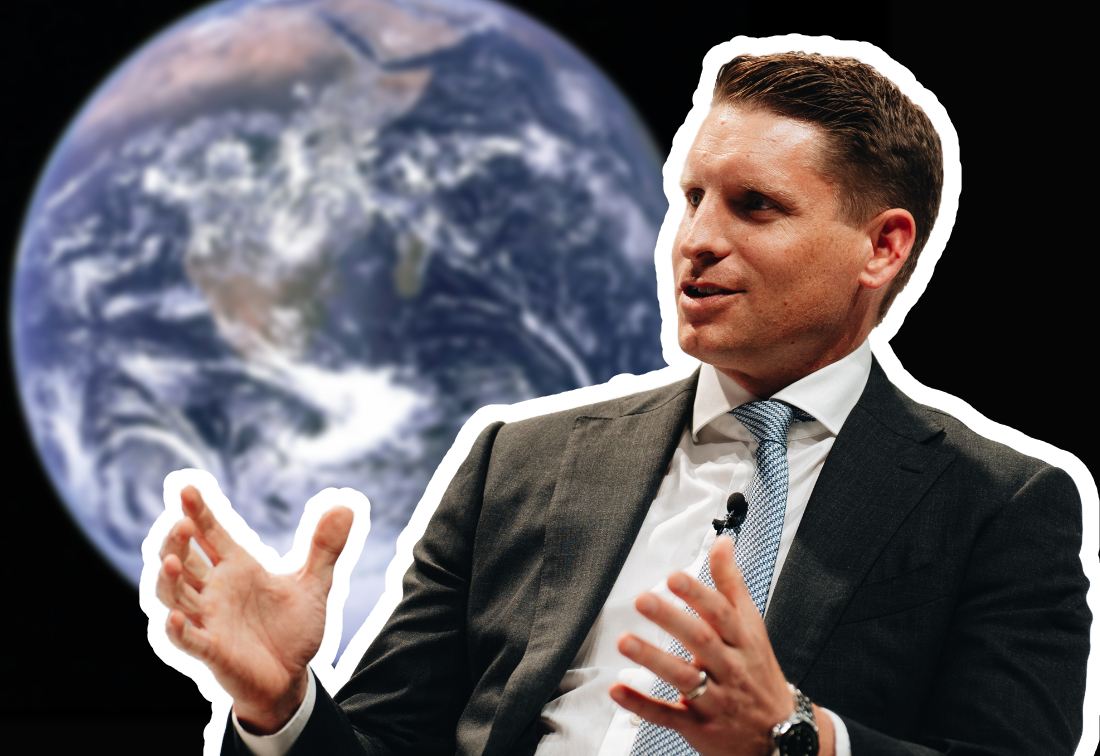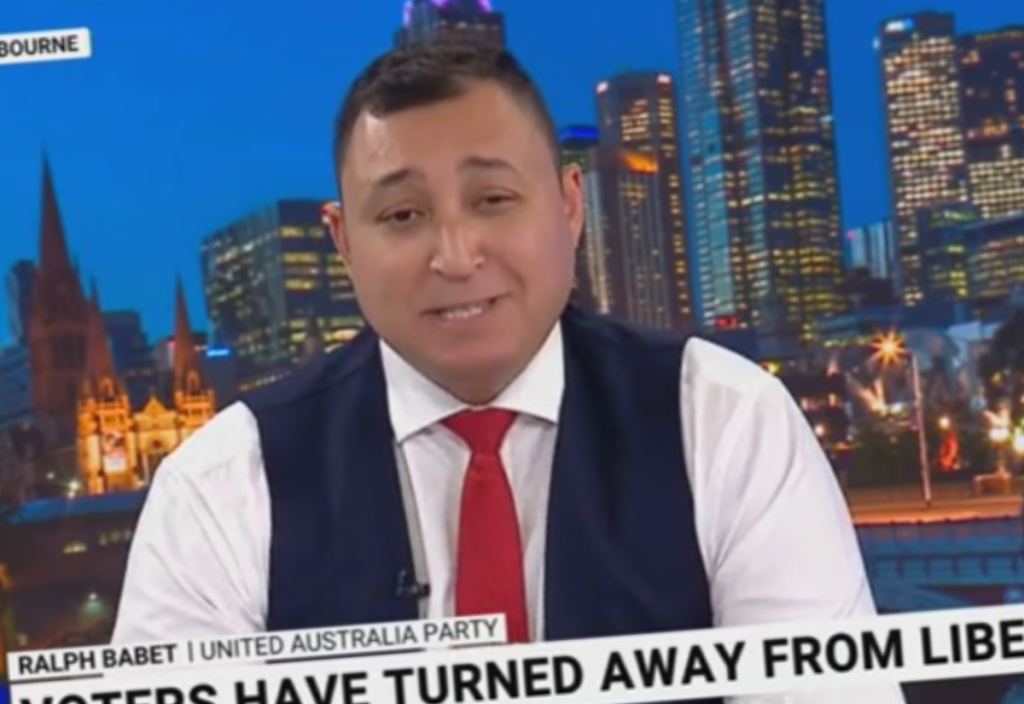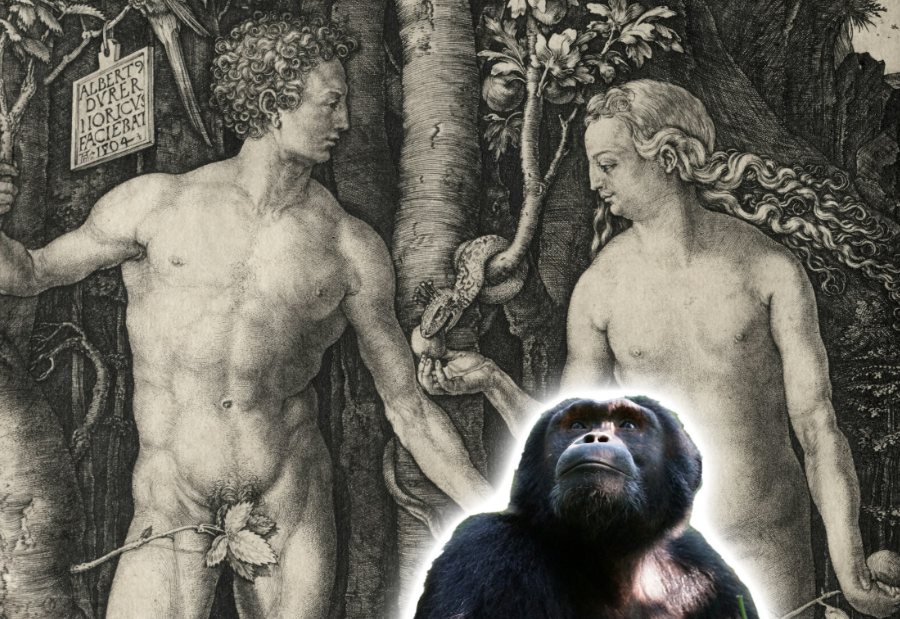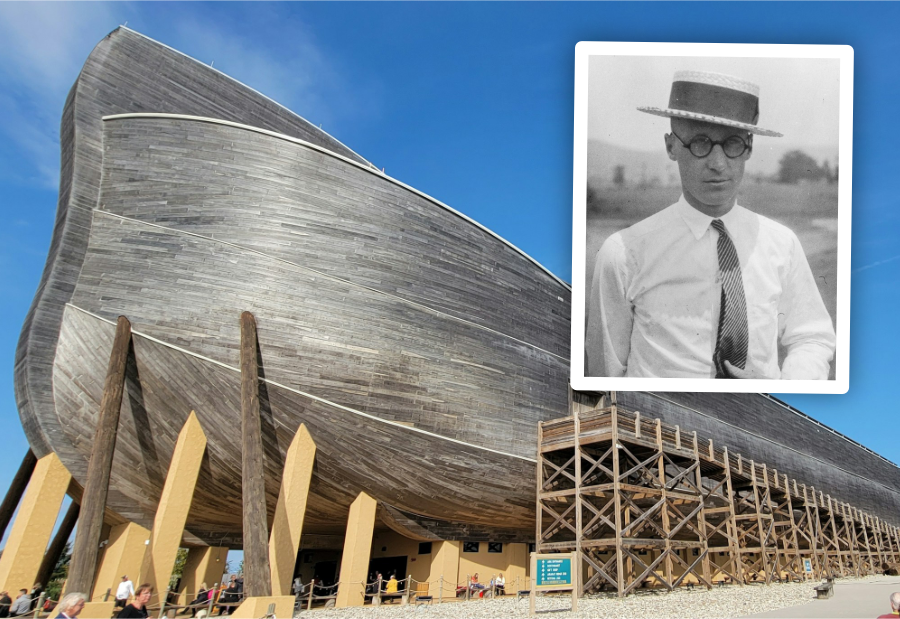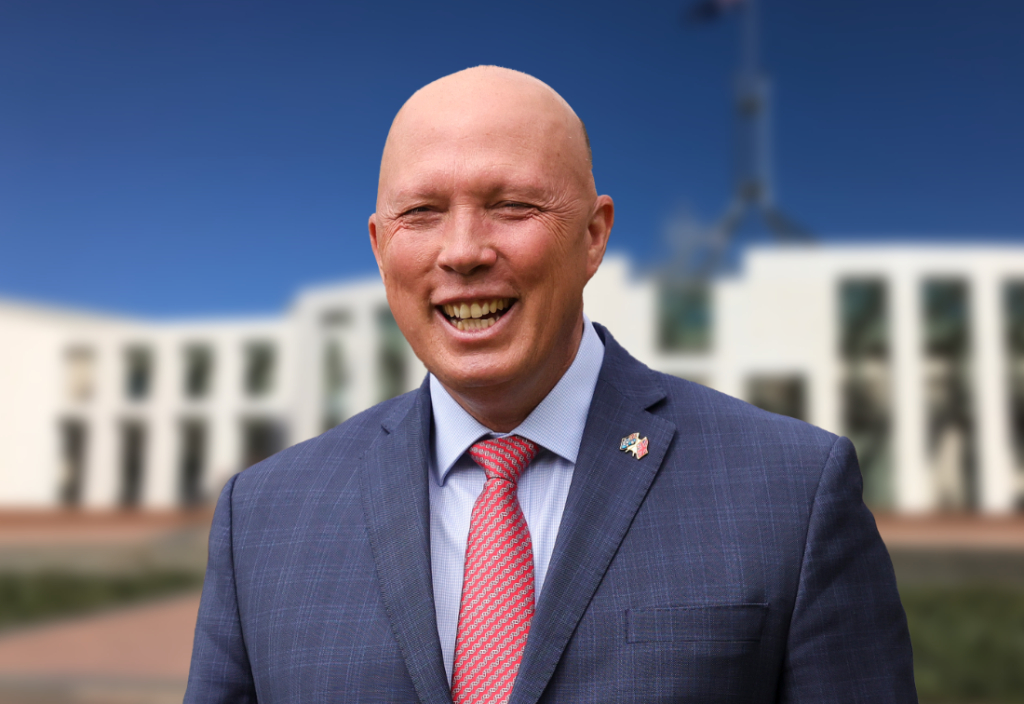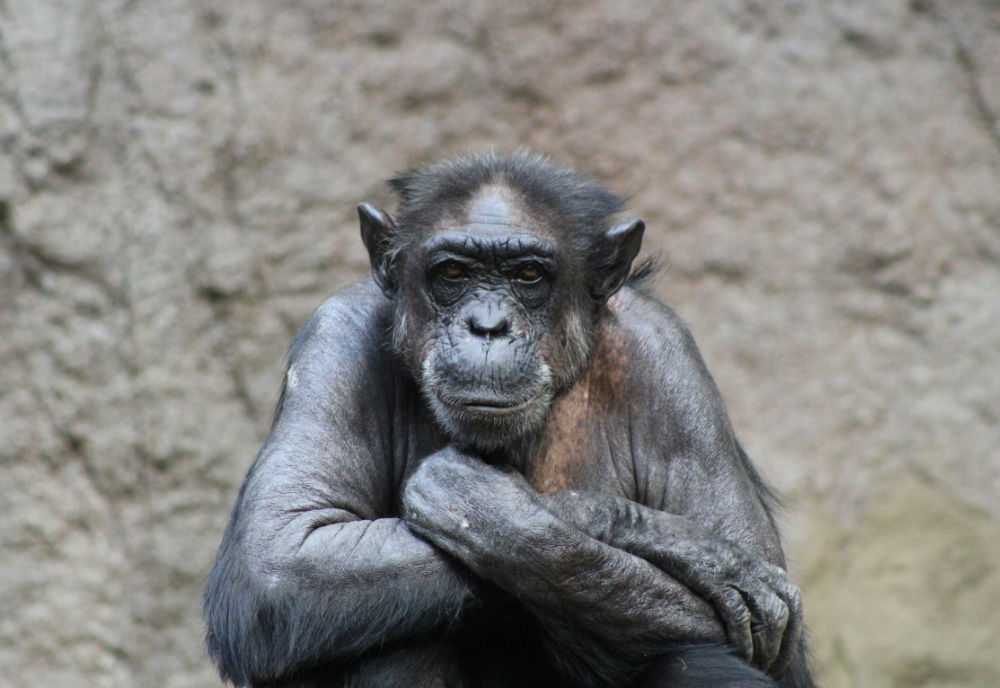Ten years ago, during his first political campaign, Andrew Hastie refused to answer media questions about his religious views and whether he shared his father’s beliefs in the Christian creationist myth.
“People are sick of this crap,” he told a media pack.
“There’s no religious test in this country for public office. Like many Australians, I have a Christian faith, which presupposes the existence of a God.”
On the campaign trail in the West Australian electorate of Canning a week earlier, and while standing alongside former prime minister John Howard, Hastie argued that media questions about his family and their religious beliefs were “totally unacceptable” and “completely irrelevant to this campaign”.
Following the confrontation between Hastie and the media, Michael Lucy, writing in The Monthly, argued that Canning voters were entitled to know Hastie’s beliefs. Crikey argued that Hastie’s religious views were relevant to the public “especially as the power inside the Liberal Party finds a new balance”.
That was 10 years ago. Yet, even as speculation now rages that Hastie is positioning himself for a tilt at the Liberal Party leadership, the Australian media and public appear to be no clearer about Hastie’s religious beliefs.
Today, the Rationale magazine – a publication of the Rationalist Society of Australia – can help shed some light on the issue.
Rationale has discovered a podcast interview in which Hastie discusses Genesis – the first book of the biblical scriptures of both Judaism and Christianity that describes the creation of the Earth and humankind – with a pastor from Eastlake Church in Mandurah. A video of the interview, conducted last year, is accessible on the church’s YouTube channel.
In the interview, Hastie says that Genesis “answers a few of the big questions upfront”, including about our origins.
“The first couple of chapters – it just reminds me of this world. It’s not – it is not random. It’s not just happening by chance. It does have intelligent design,” he says.
“And there is a creator. And the first thing it reminds me of is to praise the creator, who is awesome, and powerful and good.”
In 2015, when the former Special Air Service army soldier was contesting the by-election in Canning, south of Perth, following the sudden death of the sitting member, media outlets took great interest in the religious views of his father, Peter.
Peter Hastie was then principal and pastoral dean at Melbourne’s Presbyterian Theological College and part of Creation Ministries International (CMI), which promotes the pseudoscience of young-Earth creationism. Peter has written against evolution on the CMI website.
According to reports at the time, candidate Hastie said he identified as an Anglican but refused to answer multiple questions on the topic of creationism.
He also shrugged off suggestions that his religious views could one day become very relevant to public policy-making – such as if he were to become the nation’s science minister.
“No, look, look … I’m interested in the people of Canning. I haven’t done science since year 12 at high school and I’m not interested in talking about curriculum or anything else; I’m interested in talking about Canning and public policy solutions for them,” he said.
In the podcast interview, Hastie does not explicitly say whether he believes ‘young-Earth creationism’, which claims that the Earth is thousands of years old – instead of billions of years – based on a literal interpretation of the Genesis account.
Some religionists instead focus on ‘intelligent design’ as an alternative theory to evolution, emphasising what they claim is evidence of design in nature. Mainstream scientists have found no support for intelligent design challenging the fundamental principles of evolution and have pushed back against the efforts of its typically conservative Christian proponents, especially in the United States, to inject intelligent design into science classrooms.
More mainstream Christians see no problem with evolution or with teaching evolution and related scientific approaches in schools.
In the podcast, Hastie also speaks about the importance of his Christian faith in balancing the demands of a member of parliament.
“Politics is a pressure cooker. There are lots of pressure on you personally, your family life. You often have to make compromises – and, by that, I don’t mean about your deeply held beliefs.
“But also politics holds a mirror up to yourself, as well. You see your strengths and you see your weaknesses. And, so, as a Christian, you’re always conscious about pride and the other temptations that come at you through politics.
“Being anchored in a church, as we are here, and being anchored in scripture, as well, it just reminds you of the need to humble yourself.”
Hastie says he reads, at a minimum, four chapters of scripture a day as part of a routine, especially while travelling, and often prays.
“I’m just sending signals up throughout the day. I think it’s always good to get on your knees and close the day with prayer, particularly when those days are hard. Just to be humbled.”
In recent days, The Guardian has reported that Hastie is emerging as de facto leader of what insiders describe as the “MAGA right”, aiming to drag the Liberal Party down a populist path.
Since the party’s heavy defeat at this year’s federal election and the elevation of moderate Sussan Ley to the leadership, Hastie has launched his own personal crusades, threatening to quit the shadow frontbench if the party recommitted to net zero by 2050 and freelancing on manufacturing and immigration policy.
The Age – under a headline dubbing Hastie ‘Mr Conviction’ – reported that Hastie “has a deeply held Christian faith”. But it also noted that he continued to wrestle with how, if he were to become party leader, he would explain his positions on issues such as same-sex marriage, abortion and women in military combat roles.
In a commentary piece published on the Christian fundamentalist Canberra Declaration website following the assassination of Charlie Kirk last month, Hastie lamented that “our youth have been severed from the great Christian tradition”.
He argued that “we need to fight for our Western ideas and values” such as the innate dignity and worth of every single human being, ordered liberty under law, and freedom of conscience and speech – which he claimed as “all Christian ideas”.
In the article, Hastie also claimed that “many of our intellectual class” now “despise Western civilisation” and he described the “radical left” as “evil” and as willing to “use violence to win”.
Published 3 October 2025.
If you wish to republish this original article, please attribute to Rationale. Click here to find out more about republishing under Creative Commons.

